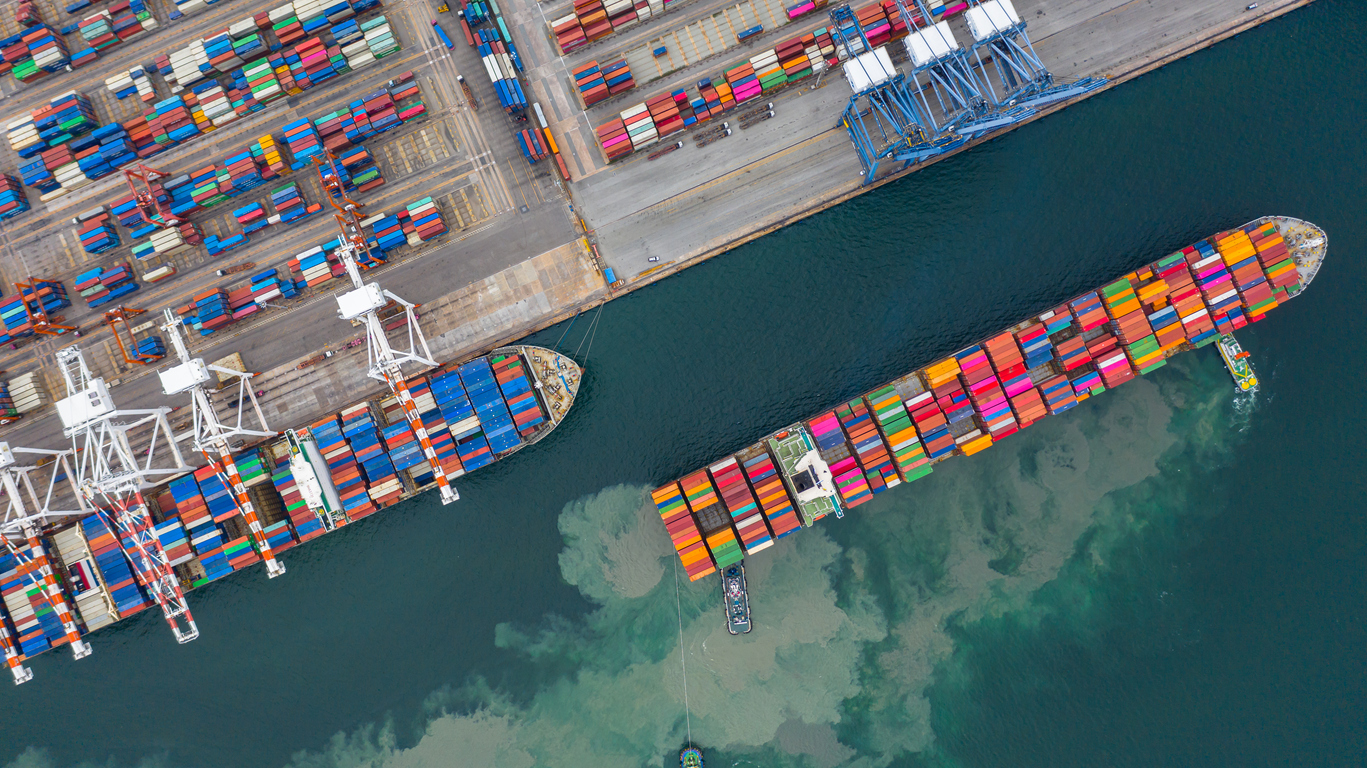Everything You Need to Know About Customs Regulations When Shipping with Wigmore Trading to Ethiopia from South Korea
Everything You Need to Know About Customs Regulations When Shipping with Wigmore Trading to Ethiopia from South Korea
Are you planning to expand your business and ship products from South Korea to Ethiopia with Wigmore Trading? If so, understanding customs regulations is crucial. Navigating the complexities of cross-border shipping can be overwhelming, but don’t worry – we’ve got you covered! In this blog post, we’ll provide you with everything you need to know about customs regulations when shipping with Wigmore Trading to Ethiopia from South Korea. From documentation requirements to prohibited items and import duties, we’ll guide you through the process step by step. So sit back, relax, and let’s dive into the world of international trade!
Introduction to Customs Regulations
When shipping with Wigmore Trading to Ethiopia from South Korea, it is important to be aware of the customs regulations in both countries. In Ethiopia, all goods imported from South Korea must be declared and presented to customs for inspection. All commercial shipments must be accompanied by a commercial invoice, packing list, and bill of lading. Personal effects shipments are allowed, but may be subject to additional scrutiny. It is important to note that gifts are subject to duty and tax in Ethiopia. In South Korea, all commercial shipments must be accompanied by a commercial invoice, packing list, and bill of lading. Personal effects shipments are allowed, but may be subject to additional scrutiny. Gifts are not subject to duty or tax in South Korea.
Wigmore Trading’s Shipping Process for Ethiopia
Wigmore Trading’s shipping process for Ethiopia is as follows:
1. All shipments must be tendered to Wigmore Trading with a completed Shipping Instruction form.
2. Wigmore Trading will provide the Ethiopian Customs Authority with the required documentation for clearance.
3. Once the shipment has been cleared by Ethiopian Customs, Wigmore Trading will arrange for delivery to the consignee’s door in Ethiopia.
Necessary Documentation for Imports/Exports
When shipping with Wigmore Trading to Ethiopia from South Korea, it is important to be aware of the customs regulations in both countries in order to avoid any delays or issues. All shipments must have the proper documentation in order to clear customs.
In South Korea, the following documents are required for exports:
-Commercial Invoice
-Packing List
-Bill of Lading or Air Waybill
-Certificate of Origin (if applicable)
-Insurance Certificate (if applicable)
In Ethiopia, the following documents are required for imports:
-Commercial Invoice
-Packing List
-Bill of Lading or Air Waybill
-Certificate of Origin (if applicable)
-Insurance Certificate (if applicable)
Tariffs & Duties in Ethiopia
When shipping with Wigmore Trading to Ethiopia from South Korea, it is important to be aware of the tariffs and duties that may apply to your shipment.
According to the World Customs Organization, the Ethiopian government has a few requirements when it comes to imports:
All shipments must be accompanied by an invoice.
The invoice must include a description of the goods, the value of the goods, and the country of origin.
Shipments valued at over $1,000 must also include a packing list.
All shipments must be declared at the port of entry.
Some goods are subject to additional taxes and duties, including but not limited to:
Alcoholic beverages
Tobacco products
Coffee
Tea
before sending your shipment, please make sure you are familiar with the customs regulations of Ethiopia. Wigmore Trading is happy to assist you in ensuring that your shipment arrives safely and smoothly.
Types of Products Allowed or Restricted in Ethiopia
There are a few types of products that are restricted or not allowed to be shipped into Ethiopia from South Korea. These include:
-Weapons and ammunition
-Narcotics and drugs
-Explosives
-Flammable liquids and solids
-Toxic substances
-Radioactive materials
When shipping any type of product to Ethiopia from South Korea, it is important to check with Wigmore Trading and the Ethiopian Customs authority to ensure that your product is allowed into the country.
Additional Requirements for Special Products
When shipping special products to Ethiopia from South Korea, there are additional requirements that must be met in order to ensure smooth customs clearance. All shipments of special products must include a detailed packing list, as well as a certificate of origin and a commercial invoice. In addition, all shipments of special products must be accompanied by an export license from the Ministry of Economy and Trade.
Insurance and Liability Considerations
When shipping with Wigmore Trading to Ethiopia from South Korea, it is important to be aware of the customs regulations in both countries. Failure to comply with these regulations can result in delays, fines, or even seizure of your shipment.
In South Korea, all shipments must be declared to Customs. This includes a detailed description of the contents, value, and weight of the shipment. All shipments must also include an invoice.
In Ethiopia, all shipments must be cleared through Customs before they can be delivered. This process can take several days, so it is important to plan accordingly. All shipments must include a commercial invoice detailing the contents, value, and weight of the shipment. Shipments valued at over $1,000 USD will also require a Certificate of Origin.
Conclusion
Wigmore Trading provides customers with a reliable and cost-effective way to ship their goods between South Korea and Ethiopia. With this knowledge, you can now confidently prepare your shipment for customs regulations when shipping with Wigmore Trading. The key is to be well informed about the rules and regulations regarding international trade before transporting your items as failing to adhere may result in hefty fines or penalties.








Comments are closed.